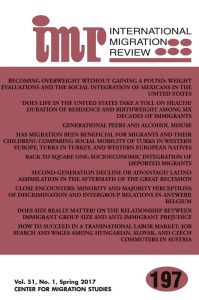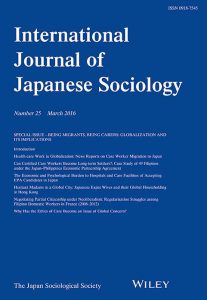Where are future generations in newspaper coverage of climate change?
Climate change is accelerating – and will impact most on children and those yet to be born. The failure to halt the relentless rise in global temperatures is an act of intergenerational injustice in which the UK is centrally implicated. It is among the top national contributors to global fossil fuel emissions and, as the first industrialising country, has made the largest per person contribution to climate change. While today’s children and tomorrow’s generations will be hardest hit, they...



















1540-6210/asset/society_affiliation_image.gif?v=1&s=812a48e1b22880cc84f94f210b57b44da3ec16f9)
1540-6237/asset/SSSA_Logo-RGB.jpg?v=1&s=c337bd297fd542da89c4e342754f2e91c5d6302e)